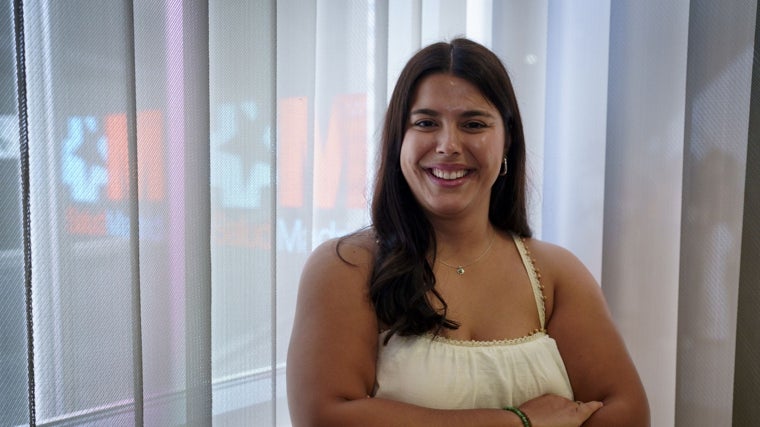Residents of Madrid choosing family medicine: "It's the ugly girl, but it's a beautiful job."

Esther and Silvia are two geniuses, with an excellent score on the MIR (National Institute of Medical Research)—below the top 1,000 out of 13,500—who could have chosen almost any specialty, but have opted for Family Medicine . They want to work in a health center in Madrid, and they will begin training there starting today. This year, all 244 positions available in this specialty have been filled; Madrid was the first region to award all its MIR positions.
Those who choose to become family doctors now go through the process of choosing the center where they want to train. In no more than four days, they'll be in their offices. "You're a blank slate; whether you're mediocre or excellent will be up to you," urged Silvia Pulido, head of studies at the Multiprofessional Teaching Unit for Family and Community Care in the northern region.
Silvia Sánchez Vázquez is one of the resident physicians who have chosen to become a family doctor in Madrid. She, number 880 in this grueling trial, will be attending the V Centenario center in Alcobendas. "This specialty was the one I liked most during the rotations," she confesses. Above all, she was convinced that "you don't narrow down to one area and exclude the rest of medicine," but quite the opposite: absolutely anything can happen in a primary care clinic.
She acknowledges that this specialty doesn't have a good reputation: from the outside, "people think the conditions were bad, that there was a worse quality of life, lower pay," but then it turns out that's not the case, especially after the agreements reached in 2023, which included significant salary increases. In her view, "Family Medicine is like the ugly girl, perhaps due to lack of knowledge." What she likes most about this specialty, besides its breadth, is that "the treatment is more familiar; at the health center, you could tell you had solved the patient's problem."
Her classmate at the Autonomous University, Esther González Llorente, MIR number 785, who will train as a family doctor at La Paz Hospital and the Barrio del Pilar health center, expresses similar opinions. "I like the consultation, the follow-up of chronic patients, getting to know the patients... but what finally convinced me was that two elderly gentlemen, while I was doing a rotation at the health center, approached me to ask what a colonoscopy was, because one of them was about to have one. It takes us five minutes to explain it to them; it's that attention, that trust of a traditional doctor," she explains. She is aware of the flaws in the system, but exudes a contagious enthusiasm: "The patient would appreciate more time with us; with good conditions, beautiful work can be done."
Now, they begin four years of training, combining both at the health center and the hospital. Esther is clear: "We have to be sponges, and go through cardiology, pulmonary, internal medicine, pediatrics, emergency medicine..." The final year of the rotation, the fourth, is spent entirely at the health center.
 Silvia Sánchez, MIR with number 880 out of 13,500, who has also chosen to train as a family doctor
José Ramón Barks
Silvia Sánchez, MIR with number 880 out of 13,500, who has also chosen to train as a family doctor
José Ramón Barks
A tutor supervises them throughout the process. Esther's tutor, Juan Vicente Ruiz, is an allergist and family doctor, and they met yesterday. "I'm proud that with this number of MIRs, I've taken up this specialty, which gives you a broad spectrum of medicine," Vicente noted. The tutors support them with "professional training and ethics" and guide them so they "have their first contact with the healthcare system."
Also yesterday, the new nurses began their two-year specialization period, the EIR (Registered Internship). Inés, Irene, Cristina, and Andrea chose this option because "you rarely see patients in hospitals, and here you have more direct contact and more autonomy: they're your patients. And you see people of all ages." But above all, they are convinced that "you can impact the patient's life, make real changes in their health."
After four years of MIR, they've finally completed their specialty and must decide whether to stay in Madrid or move to another region to work. María José Sánchez Rodríguez is in that situation: she'll finish her training in July. It's time to decide, and she's clear that she wants to stay in Madrid.
She already had previous experience in Primary Care: this doctor was previously a nurse in health centers. She's delighted with her choice; in her summary, Family Medicine "is super comprehensive; you can do whatever you want, you set your own limits: stay in the office or also perform minor surgery, ultrasounds, techniques, emergencies..." And "you follow up with the patient, something other specialties don't offer."
Silvia Pulido , the head of studies, emphasizes that family doctors do "everything: they treat illnesses, health promotion, prevention, emergencies, final-day care, mental health... they rotate through everything, palliative care, ENT, surgery... the family doctor is the most highly trained of all. And 95 percent of the consultations are resolved here."
While appreciating the fact that people with excellent clinical records choose Family and Community Medicine, Pulido insists that "for us, the number they get isn't important; what matters is that they connect with the patient, have empathy, recognize the patient's ailments, and are efficient."
ABC.es





